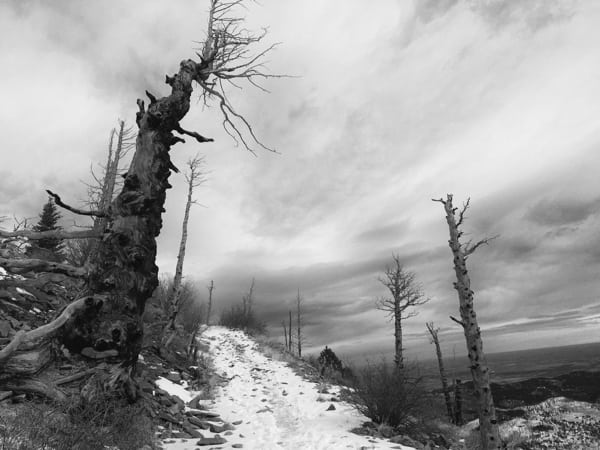Nearly a decade ago, I was working on school-building projects in the Maasai Mara, in a remote area of the Great Rift Valley of Kenya. During my stay, and for the first time in my life, the deeper meaning of long-distance foot travel truly hit home. I would often take long treks with my Maasai friend to visit his family several valleys over from our camp. We would hike four to five hours one way, over rugged hills, leaving just before dawn, moving cautiously to avoid elephant herds and other game. When we reached my friend’s home, we would sit in his parents’ mud hut, sip sweet milky tea, and chat about the walk, the weather, the cattle. My friend would drop off a few goods and sometimes some money for his family. We would never stay long, an hour at most, drinking a cup of sour milk from a calabash for strength before returning back to camp–a full day’s worth of hiking for a brief exchange.
Driving would have a been a possibility, yet would have taken approximately the same amount of time, cost money, and added the stress of a potential breakdown or getting stuck in the mud. Walking, while fundamentally utilitarian, was also a form of independence and self-reliance.
Another good friend of mine was a Kipsigis man, a goat herder and a 2:12 marathoner. In Kenya, running 2:12 for the marathon does not mean much, given the depth of talent and fierce competition for the limited opportunities to race internationally. He admitted to me that he started running with hopes of traveling to Europe to win prize money from racing to bring back to his family. While he did not succeed in gaining sponsorship for travel, he did come to love the practice of running for its own sake. Each morning, he would wake up, run for a few hours on the dusty, sun-beaten dirt roads connecting the neighboring villages, and then proceed on to a full day of herding his goats. Running had slipped into his routine as something nourishing and vital. It struck me that the act of moving on foot had greater meaning and importance than simply being a means of transportation.
My Kenyan friends have little in the way of material possessions. Their work is strenuous and overshadowed with precarity. Yet, in the face of this adversity, they still carve out time to walk and run, for pleasure, for fulfillment, for personal exploration.
I realize that in my own life, I should not treat running as a given, as something I can just go out and do, but as a privilege. Every time I head out the door, no matter the distance or the time, I am grateful for the opportunity to put one foot in front of the other.
I am very fortunate to be able to travel to races all over the world. Events, gear, and accommodation are all expensive and require a certain affluence of participants. Running, as an organized sport, is an activity for the privileged. Beyond the expenses of participation are also the basic privileges of time and health. I am constantly reminded of the immense wealth afforded by these two ephemeral elements. This past weekend’s long run was no different.
I head out the door early morning, gently letting the aches and pains of my body settle to neutrality. The sky has a solemn mood, revealing not an inch of blue, thick instead with greys, whites, and blacks. The air feels heavy, quiet. I drop rapidly into the canyon, the relaxed pace giving me a chance to synch my breathing to my stride. Before long, I’m working the first climb, existing only in that small bubble of effort, vacillating between pleasure and pain. My legs carry me, my heart and lungs are strong. Time dissolves from its pesky numerical form, ceding to its qualitative nature. How wonderful it is to run. How thankful, how fortunate I feel, that something so simple can confer so much wealth. Such privileges should not be taken for granted, so I cherish each and every step I am able to take.
Call for Comments (from Meghan)
- How have you found running to be a privilege for you? In the way that you have personal time amidst a hectic family and work life? That you are able to travel through greenscape in a world that is becoming more paved and populated every day? That you have the requisite affluence to buy running shoes and race entries? For another reason?
- When was the last time you felt the privilege of running be taken away, whether it was because of lack of time, access to the resources you needed to do it, or something else?






